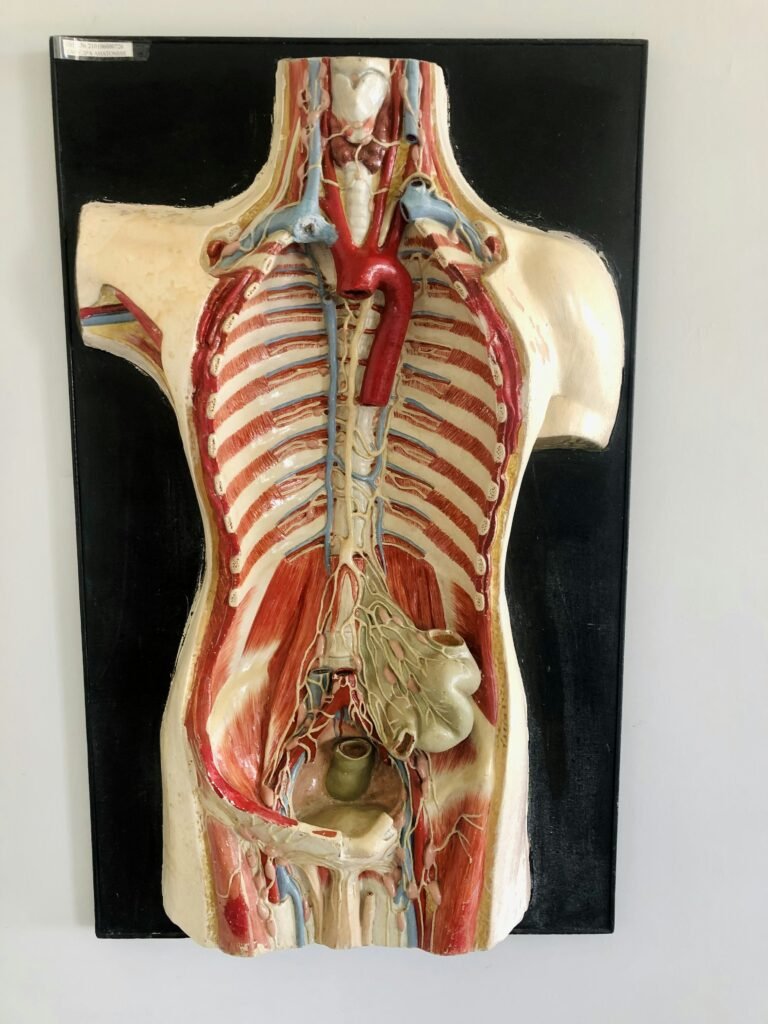Recognizing and Managing Thyroid Disorder Symptoms
Have you been feeling off lately but can’t quite put your finger on what’s wrong? It’s possible that you may be experiencing symptoms of a thyroid disorder. Understanding the signs and symptoms of thyroid issues is crucial in getting the proper diagnosis and treatment. Let’s delve into the various symptoms of thyroid disorders and how you can manage them effectively to improve your overall health and well-being.
Check out our Product Reviews
What is the Thyroid Gland?
Before we dive into the symptoms of thyroid disorders, let’s first understand what the thyroid gland is and its importance in your overall health. The thyroid gland is a small, butterfly-shaped gland located in the front of your neck. It plays a crucial role in regulating numerous bodily functions, including metabolism, heart rate, energy levels, and body temperature.
Symptoms of Hyperthyroidism
Hyperthyroidism occurs when the thyroid gland produces an excessive amount of thyroid hormones. This can lead to an overactive metabolism and a range of symptoms such as:
- Unexplained Weight Loss: You may notice that you are losing weight despite not changing your diet or exercise routine.
- Increased Heart Rate: You may experience heart palpitations or a rapid heartbeat.
- Anxiety and Irritability: Hyperthyroidism can cause feelings of anxiety, nervousness, and irritability.
- Tremors: You may notice trembling or shaking in your hands or other parts of your body.
- Heat Sensitivity: Feeling overly warm, sweaty, or intolerant of heat can be a common symptom of hyperthyroidism.
If you are experiencing any of these symptoms, it’s essential to consult with your healthcare provider for a proper diagnosis and treatment plan.

This image is property of images.unsplash.com.
Check out our Product Reviews
Symptoms of Hypothyroidism
On the other hand, hypothyroidism occurs when the thyroid gland does not produce enough thyroid hormones. This can lead to a slowed metabolism and a range of symptoms such as:
- Unexplained Weight Gain: You may find it challenging to lose weight or notice sudden weight gain.
- Fatigue: Feeling excessively tired, lethargic, or experiencing a lack of energy.
- Cold Sensitivity: Feeling cold all the time or having difficulty tolerating cold temperatures.
- Dry Skin and Hair: Hypothyroidism can lead to dry, coarse skin and hair.
- Depression and Mood Swings: Changes in mood, including sadness, irritability, and depression, are common symptoms of hypothyroidism.
If you suspect that you may have hypothyroidism based on these symptoms, seek medical advice for proper evaluation and management.
Symptoms of Thyroid Nodules
Thyroid nodules are abnormal growths or lumps that form within the thyroid gland. While most thyroid nodules are harmless, some can cause symptoms such as:
- Neck Swelling: You may notice a visible lump or swelling in your neck.
- Difficulty Swallowing: Thyroid nodules can compress the esophagus, leading to difficulty swallowing or a feeling of a lump in the throat.
- Hoarseness: Changes in your voice, such as hoarseness or vocal changes, may indicate a thyroid nodule pressing on the vocal cords.
- Breathing Problems: In severe cases, large thyroid nodules can cause breathing difficulties or shortness of breath.
If you experience any of these symptoms, it’s essential to have your healthcare provider evaluate the thyroid nodules to determine if further testing or treatment is needed.

This image is property of images.unsplash.com.
Symptoms of Thyroid Cancer
Thyroid cancer is relatively rare but can present with the following symptoms:
- Swollen Lymph Nodes: Enlarged lymph nodes in the neck can be a sign of thyroid cancer.
- Persistent Cough: A chronic cough that doesn’t go away despite treatment may be a symptom of thyroid cancer.
- Voice Changes: Persistent hoarseness or changes in voice quality can indicate thyroid cancer.
- Neck Pain: Pain or discomfort in the neck, especially around the thyroid area, should be evaluated by a healthcare provider.
If you notice any of these symptoms, make sure to seek medical attention promptly for a thorough evaluation and appropriate management.
Managing Thyroid Disorder Symptoms
Managing thyroid disorder symptoms involves a combination of medical treatment, lifestyle changes, and dietary modifications. Here are some strategies to help you effectively manage thyroid disorder symptoms:
Medical Treatment
- Medication: Depending on the type of thyroid disorder, your healthcare provider may prescribe thyroid hormone replacement therapy (such as levothyroxine) for hypothyroidism or anti-thyroid medications (such as methimazole) for hyperthyroidism.
- Radioactive Iodine Therapy: This treatment may be recommended for hyperthyroidism to reduce thyroid hormone production.
- Thyroid Surgery: In cases of thyroid nodules, cancer, or severe thyroid disorders, surgery to remove part or all of the thyroid gland may be necessary.
Lifestyle Changes
- Healthy Diet: Eating a balanced diet rich in fruits, vegetables, lean protein, and whole grains can support thyroid function and overall health.
- Regular Exercise: Engaging in regular physical activity can help boost metabolism, improve energy levels, and promote overall well-being.
- Stress Management: Practicing stress-reducing techniques such as meditation, yoga, or deep breathing exercises can help manage anxiety and promote relaxation.
Dietary Modifications
- Iodine Intake: Ensure adequate but not excessive iodine intake through sources such as iodized salt, seafood, dairy products, and seaweed.
- Limit Goitrogens: Some foods, known as goitrogens (e.g., cabbage, broccoli, soy, and peanuts), can interfere with thyroid function and should be consumed in moderation.
- Consult a Dietitian: If you have specific dietary concerns related to your thyroid disorder, consider working with a registered dietitian for personalized guidance.
By incorporating these strategies into your daily routine, you can effectively manage thyroid disorder symptoms and improve your quality of life.

This image is property of images.unsplash.com.
Conclusion
Recognizing and managing thyroid disorder symptoms is essential for maintaining optimal health and well-being. Whether you are experiencing symptoms of hyperthyroidism, hypothyroidism, thyroid nodules, or thyroid cancer, seeking timely medical evaluation and treatment is crucial. By working closely with your healthcare provider and implementing lifestyle changes, dietary modifications, and medical treatments as needed, you can effectively manage thyroid disorder symptoms and enhance your overall quality of life. Remember, your health is a priority, so don’t hesitate to take proactive steps in addressing any thyroid-related concerns you may have.
Check out our Product Reviews